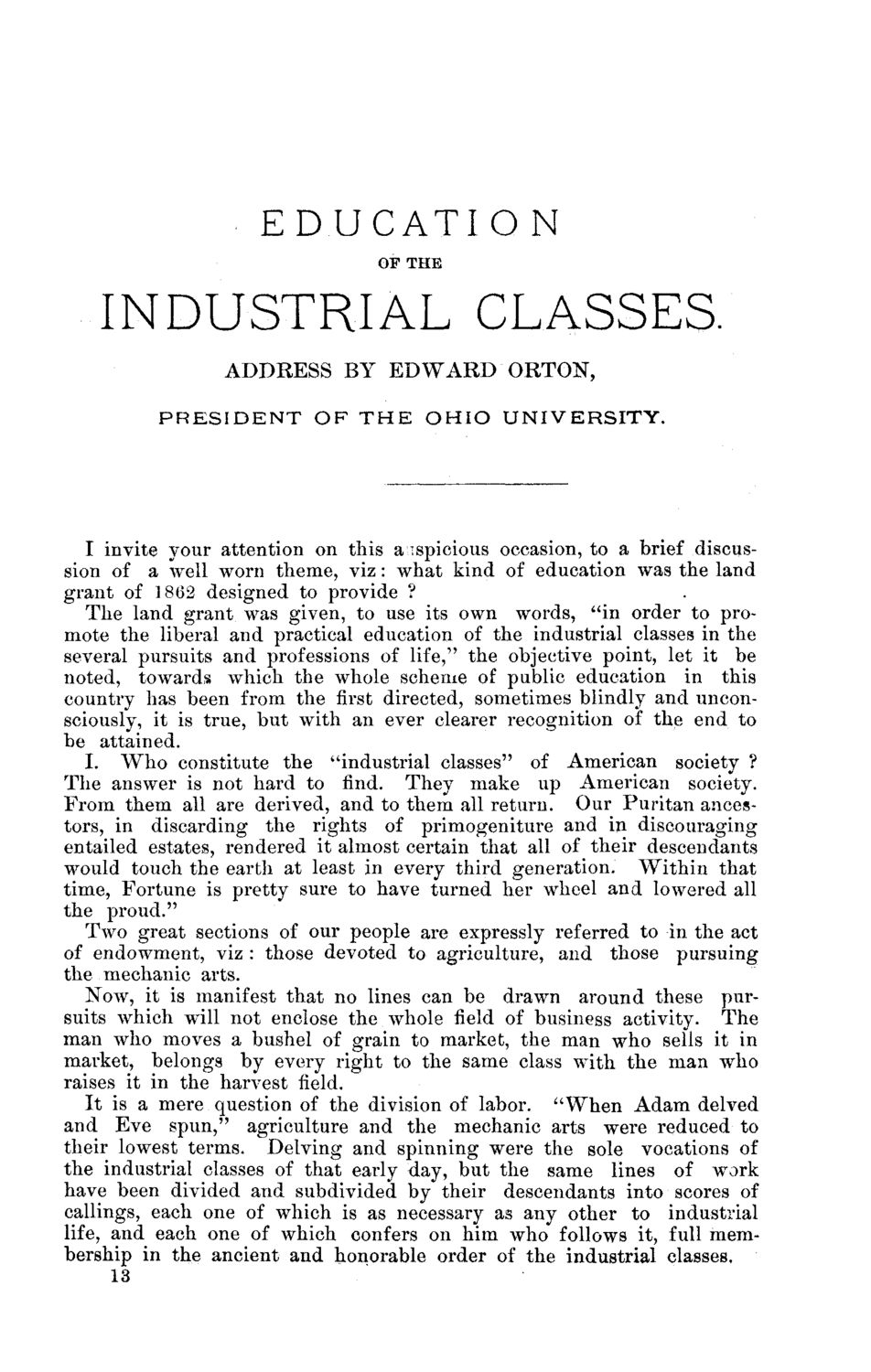| |
| |
Caption: Board of Trustees Minutes - 1878
This is a reduced-resolution page image for fast online browsing.

EXTRACTED TEXT FROM PAGE:
EDUCATION OF T H E INDUSTRIAL CLASSES. ADDRESS BY E D W A R D ORTON, P R E S I D E N T O F T H E OHIO UNIVERSITY. I invite your attention on this a ispicious occasion, to a brief discussion of a well worn theme, viz: what kind of education was the land grant of 1862 designed to provide ? The land grant was given, to use its own words, "in order to promote the liberal and practical education of the industrial classes in the several pursuits and professions of life," the objective point, let it be noted, towards which the whole scheme of public education in this country has been from the first directed, sometimes blindly and unconsciously, it is true, but with an ever clearer recognition of the end to be attained. I. W h o constitute the "industrial classes" of American society ? The answer is not hard to find. They make up American society. From them all are derived, and to them all return. Our Puritan ancestors, in discarding the rights of primogeniture and in discouraging entailed estates, rendered it almost certain that all of their descendants would touch the earth at least in every third generation. W i t h i n that time, Fortune is pretty sure to have turned her wheel and lowered all the proud." Two great sections of our people are expressly referred to in the act of endowment, viz : those devoted to agriculture, and those pursuing the mechanic arts. ISTow, it is manifest that no lines can be drawn around these pursuits which will not enclose the whole field of business activity. The man who moves a bushel of grain to market, the man who sells it in market, belongs by every right to the same class with the man who raises it in the harvest field. It is a mere question of the division of labor. " W h e n Adam delved and Eve spun," agriculture and the mechanic arts were reduced to their lowest terms. Delving and spinning were the sole vocations of the industrial classes of that early day, but the same lines of work have been divided and subdivided by their descendants into scores of callings, each one of which is as necessary as any other to industrial life, and each one of which confers on him who follows it, full membership in the ancient and honorable order of the industrial classes, 13
| |